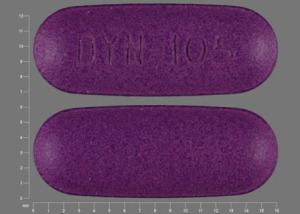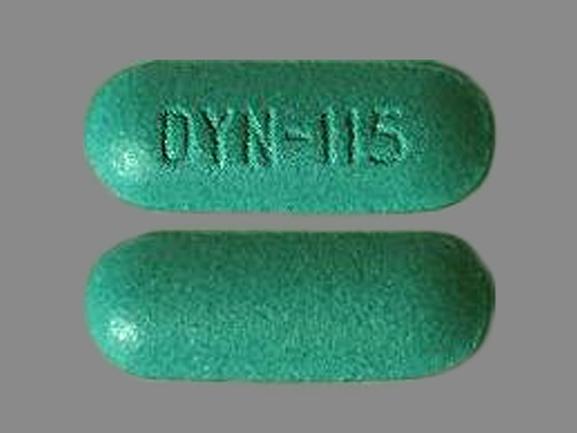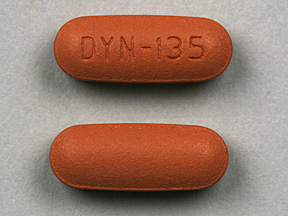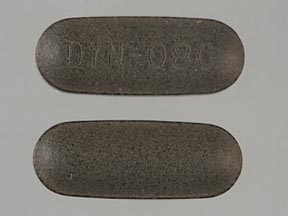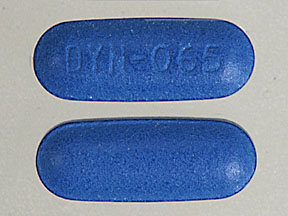
What is Solodyn?
Solodyn, also known as minocycline, is a tetracycline antibiotic that comes in the form of an extended-release tablet. Solodyn is a prescription medication used to treat pimples or red bumps that occur with moderate to severe acne vulgaris among people aged 12 and older. Solodyn does not work for acne that is not red (i.e., acne that is not inflamed).
Warnings
Solodyn should not be used if you're pregnant. It may harm an unborn child or cause permanent discoloration of the teeth later in life. Solodyn may make birth control pills ineffective. You can ask your doctor if you should use a birth control method that is not hormone-based (condom, diaphragm, or spermicide, for example) to prevent pregnancy when using Solodyn.
The minocycline in breast milk can affect the development of teeth and bones in a nursing infant. If you are breastfeeding a child, do not take Solodyn unless your doctor has prescribed it. This medication should not be taken by children. Children younger than eight years of age can have permanent tooth yellowing or graying caused by minocycline. Avoid tanning beds or exposure to sunlight. Solodyn may make you more susceptible to sunburn. Use sunscreen (SPF 30) and protective clothing when you're outdoors.
Solodyn should not be taken within two hours of taking iron supplements, calcium supplements, or multivitamins. These products may reduce the effectiveness of this medication. After the expiration date, throw away all unused medicines. The kidneys can be damaged by using expired minocycline.
Before you take this drug
Solodyn should not be taken if you have an allergy to minocycline or similar antibiotics like demeclocycline, doxycycline, or tetracycline.
Tell your doctor about any of the following to ensure that Solodyn will be safe for you:
- Liver disease
- Kidney disease
- Asthma
Do not take Solodyn while pregnant. Minocycline may harm an unborn child or cause permanent discoloration of the teeth later in life. While taking this medication, you should use effective birth control methods to avoid pregnancy. If you become pregnant while taking Solodyn, tell your doctor immediately. This medicine can cause discoloration of the teeth in your baby's mouth if either parent uses it.
Minocycline may make birth control pills ineffective. Talk to your doctor about using non-hormonal contraception (condoms, diaphragms with spermicide) to prevent pregnancy. The minocycline in breast milk can affect the development of teeth and bones in a nursing infant. While taking Solodyn, you should not breastfeed.
How to take Solodyn?
Follow your doctor's instructions when taking Solodyn Extended Release Tablets. Please follow all the instructions on the prescription label. Take this medication only as prescribed. Do not exceed the recommended dosage or take it for too long. Take this medication with a glass of water.
Take Solodyn either with or without food. Do not chew or crush an extended-release tablet. Swallow it whole. Be sure to take this medication exactly as prescribed. You may need to undergo frequent medical tests if you take this medication for a long time. If you are going to have surgery, it may be necessary for you to temporarily stop taking Solodyn. Solodyn can produce unusual results in certain medical tests. Solodyn should be disclosed to any physician who treats you.
Store away from moisture, heat, and light at room temperature. Solodyn that has not been used by the date indicated on the label should be thrown away. Minocycline that has expired can damage your kidneys.
Details on dosage
Adult dose of Solodyn for acne:
Extended-release formulations:
45 to 49 kg: 45 mg once daily orally
50 to 59 kg: 55 mg once daily orally
60 to 71 kg: 65 mg once daily orally
From 72 to 84 kg, 80 mg once daily orally
90 mg once daily orally for 85–96 kg
97–110 kg: oral 105 mg once daily
111–125 kg: orally, 115 mg once daily
From 126 kg to 136kg: 135mg orally, once daily
Duration of treatment: 12 weeks
Comments:
The recommended dose is approximately 1 mg/kg, once per day.
This drug had no effect on lesions of non-inflammatory acne.
Safety was not established after 12 weeks.
Use: Only to treat inflammatory lesions in moderate-severe acne vulgaris that are non-nodular.
Usual pediatric dose for acne:
Twelve years of age or older
Extended-release formulations:
45 to 49 kg: 45 mg once daily orally
50 to 59 kg: 55 mg once daily orally
60 to 71 kg: 65 mg once daily orally
From 72 to 84 kg, 80 mg once daily orally
85–96 kg: 90 mg orally, once daily
97–110 kg: oral 105 mg once daily
111–125 kg: orally, 115 mg once daily
From 126 kg to 136kg: 135mg orally, once daily
Duration of treatment: 12 weeks
Comments:
The recommended dose is approximately 1 mg/kg, once per day.
This drug had no effect on lesions of non-inflammatory acne.
Safety was not established after 12 weeks.
Use: Only to treat inflammatory lesions in moderate-severe acne vulgaris that are non-nodular.
What happens if I miss the dose?
If it is nearly time for your next dose, skip the one you missed and wait. Never take two doses of the same medicine at once.
What happens if I overdose?
Call 1-800-222-1222 for poison help or seek immediate medical attention. Overdose symptoms include nausea or vomiting.
What should be avoided?
You should avoid taking laxatives or multivitamins for 2 hours prior to or after taking Solodyn. These medicines may make it more difficult for your body to absorb minocycline. Do not drive or engage in hazardous activities until you have determined how the medication affects you. You may be unable to react.
Antibiotics can cause diarrhea. This could be an indication of a new illness. Call your doctor if you experience diarrhea that is bloody or watery. You should only take anti-diarrhoea medication if your doctor has prescribed it. Solodyn can make you more susceptible to sunburn. Avoid tanning beds or sunlight. When you're outdoors, wear protective clothing and use sunblock (SPF 30 or higher).
Side effects of Solodyn
If you experience symptoms of an allergic reaction (hives or difficulty breathing), a severe reaction (swollen glands or joints, pain in the face or throat, or burning in your eye), or a severe reaction on your skin (fever, sore mouth, pain in your skin, or rashes that are red or purple and blistering or peeling), seek emergency medical attention.
If you experience a severe drug reaction, seek medical attention. Symptoms include skin rash, fevers, swollen lymph glands, muscle pains, weakness, and unusual bruises.
If you experience:
- Bronchospasm is a condition that causes difficulty breathing, wheezing, and chest tightness.
- A seizure;
- Kidney disease: little or no urine, swelling of the feet or ankles, and feeling tired or breathless;
- Low blood cell counts: a fever, chills, and tiredness; mouth sores or skin sores Easy bruising. Unusual bleeding. Pale skin. Cold hands and feet. Feeling light-headed.
- Increased skull pressure; severe headaches, ringing ears, dizziness, and vision problems; or pain behind the eyes.
- Signs that you may have liver or pancreas issues: loss of appetite; upper stomach pain; nausea; vomiting; easy bruising; bleeding; dark urine; jaundice (yellowing skin or eyes).
Solodyn may cause side effects such as:
- Numbness, tingling, burning pain;
- Hair loss;
- Discoloration of your skin or nails
- Dizziness, spinning sensation;
- Muscle or joint pain
- Nausea, diarrhea, and loss of appetite are all symptoms that can be associated with nausea.
- Swollen tongue; coughing; difficulty swallowing
- Itching, rash
- Headache.
There may be other side effects. For medical advice on side effects, call your doctor. The FDA can be contacted at 1-800-FDA-1088 to report side effects.
Interaction with other drug
Tell your doctor what other medications you are taking, including:
- Isotretinoin;
- Penicillin antibiotics include amoxicilline, ampicillin, dicloxacillin, oxacilline, penicilline, ticarcilline, amoxile, moxatag, augmentin, principene, etc.
- A blood thinner Warfarin Coumadin Jantoven
- Ergot medicine: dihydroergotamine, ergotamine, ergonovine, and methylergonovine.
This list is incomplete. There are other drugs that may interact with minocycline. These include prescription and over-the-counter medicines, vitamins, and herbal products. This list does not include all possible drug interactions.




